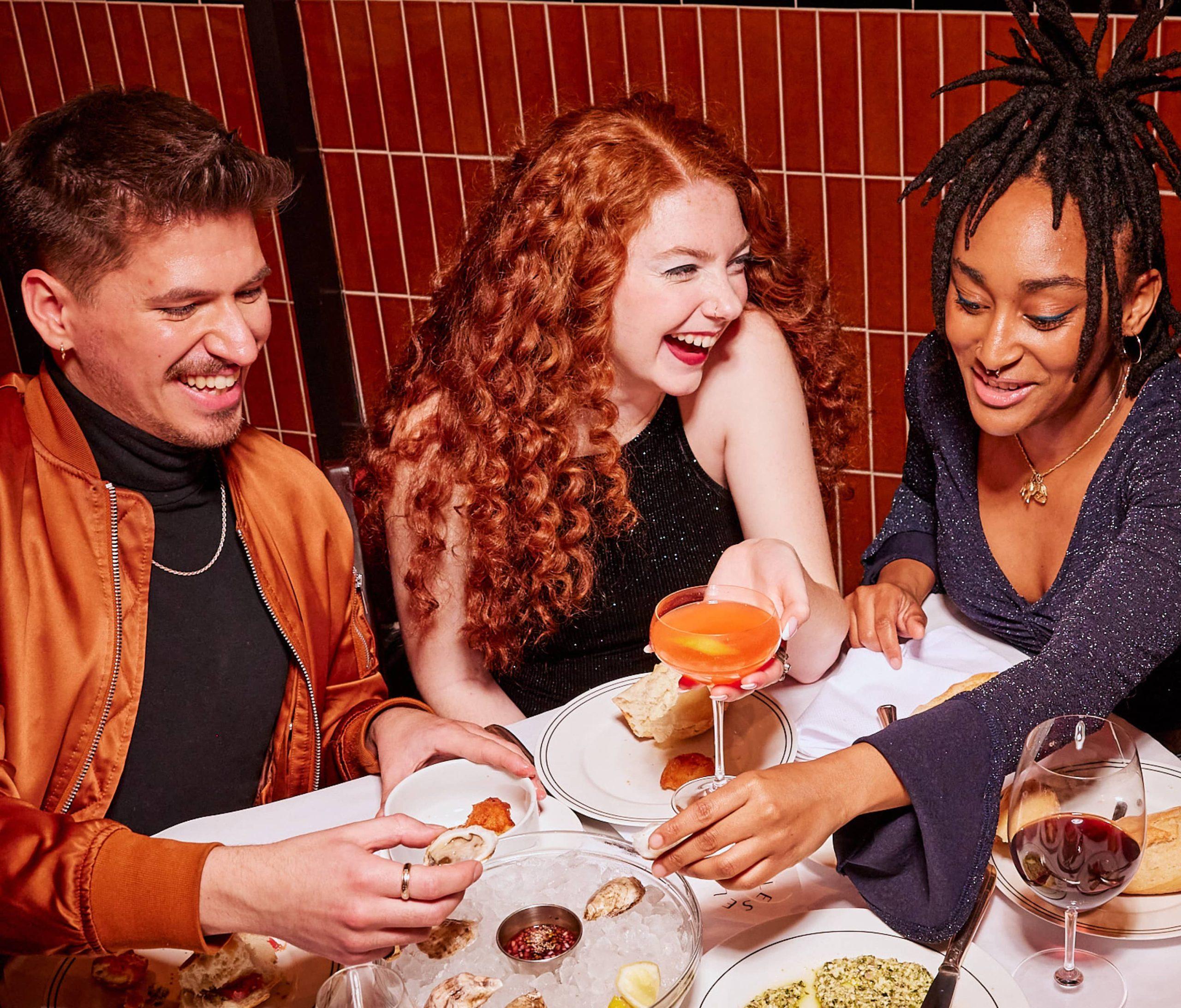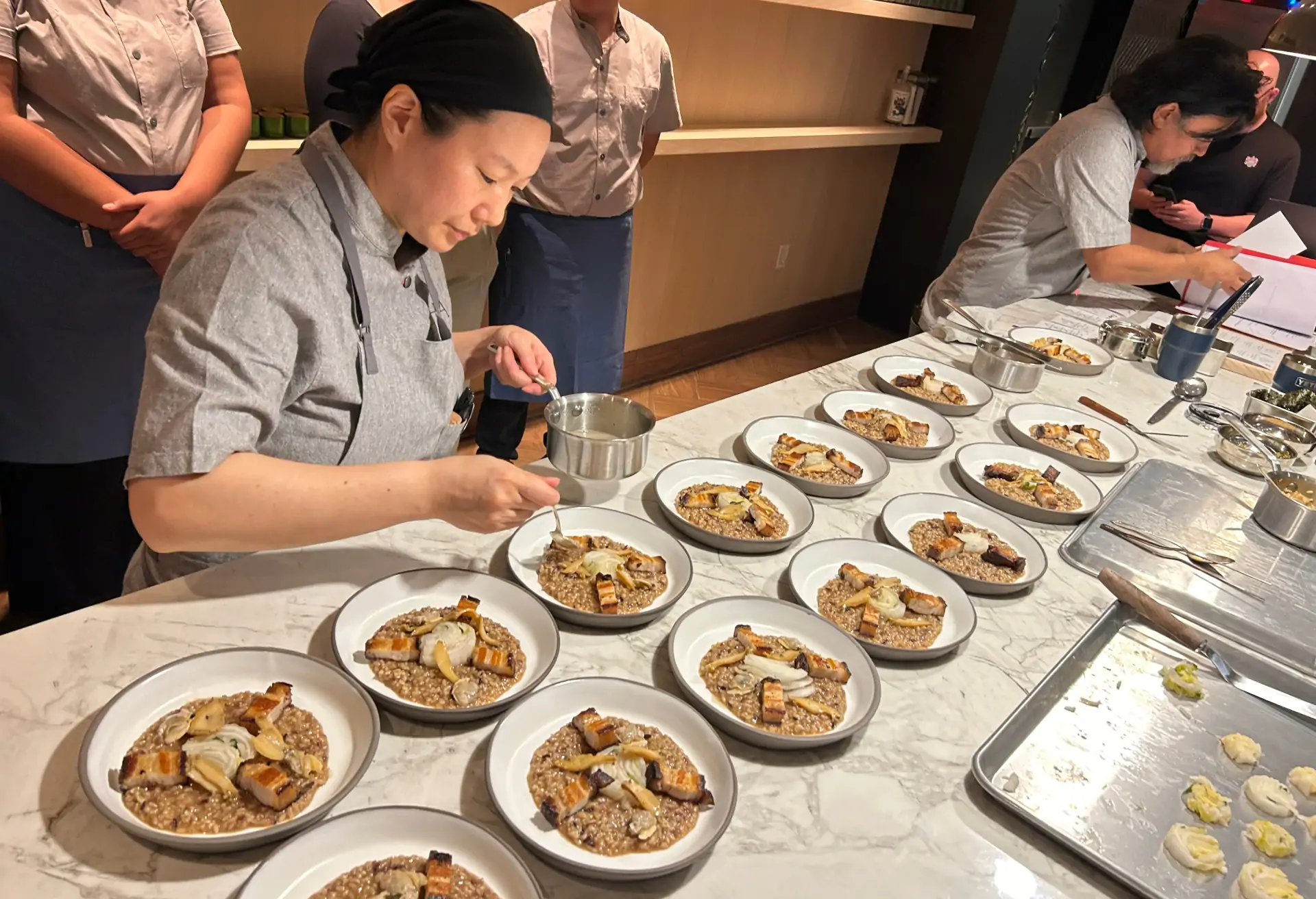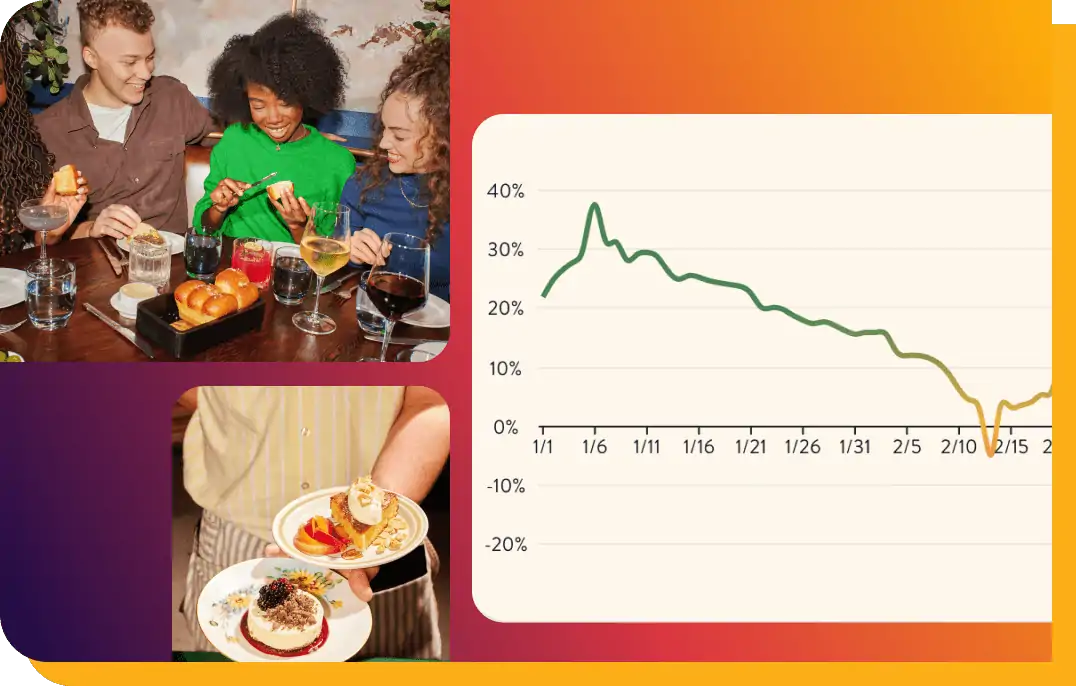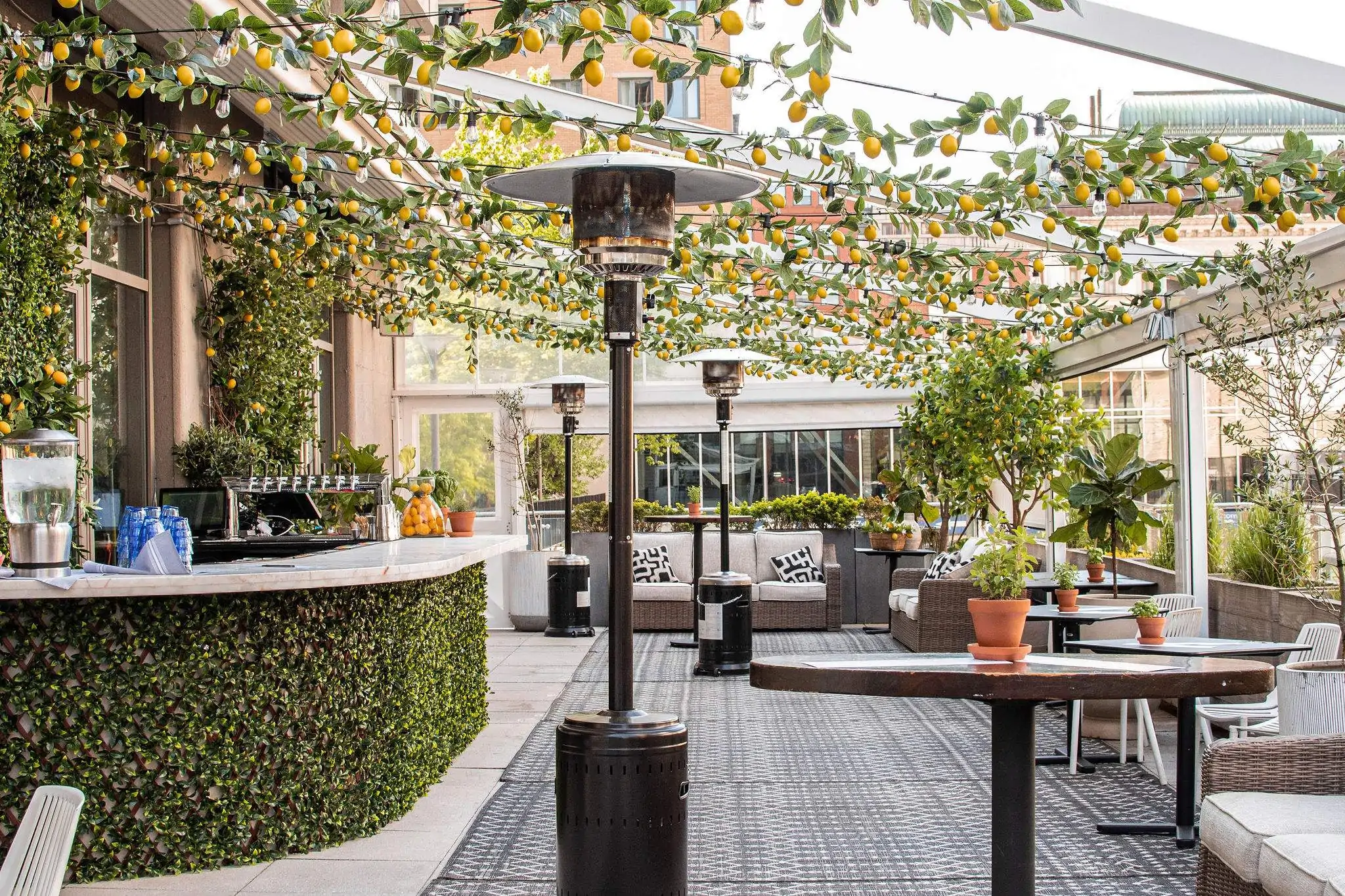Sustainability is a hot topic for restaurants, and celebrity chef Edward Lee’s DC restaurant, SHIA, is diving in headfirst to make big changes that benefit the environment—and inspire the industry. The non-profit restaurant is dedicated to researching sustainable restaurant practices and tackling critical industry issues, from equity to culture.
After two months of operation, SHIA has already made some smart changes and learned valuable lessons. Here’s a peek at their sustainability journey so far and key takeaways for restaurants like yours.
What the SHIA team did in its first months
SHIA opened its doors at the end of October 2024, kicking off its research with several impactful initiatives:
- Eliminating single-use plastics, like cling wrap and plastic utensils. They started gradually removing multi-use plastics, including food storage containers, too.
- Operating with an all-electric kitchen—no gas stoves here.
- Streamlining the recycling process with all materials in a single bin for collection, a service offered directly through their landlord.
- Tracking food and nonfood waste. Everything was still thrown away, but the team noted garbage weights and made observations to plan for smarter disposal in the future.
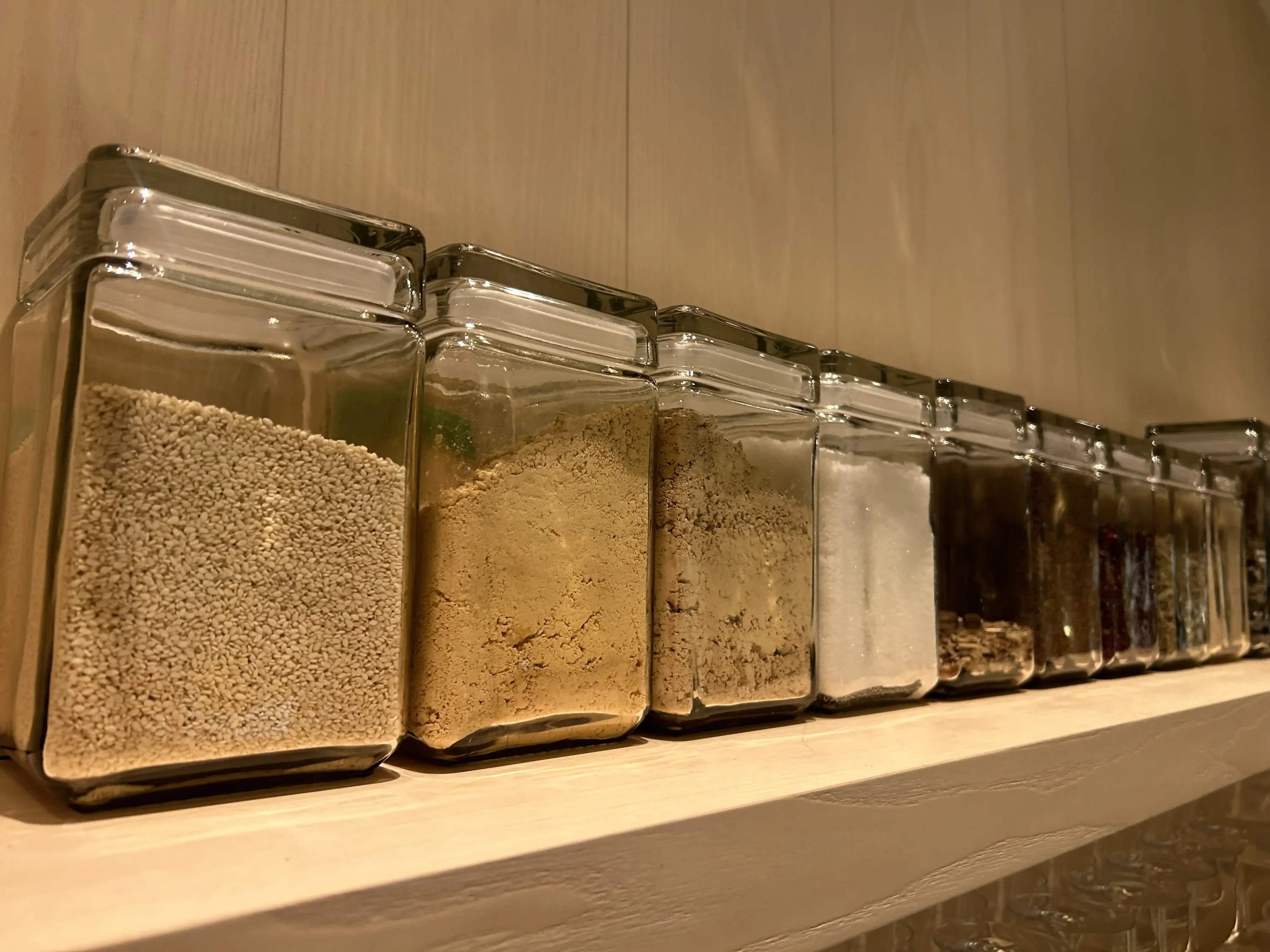
What the team learned
By tracking waste, energy use, and operational patterns, the SHIA team uncovered key challenges—and opportunities—for their restaurant. Their most notable observations include:
Waste
- Cardboard overload: Cardboard and paper were the top recyclables at the restaurant, mainly from opening supplies.
- Glass troubles: Glass was the second-highest recyclable and the most likely to contaminate single-stream recycling.
- Monday trash surge: Prep day meant the heaviest trash loads.
- Sourcing smarter: Deciding what types of food to buy and from where, like buying locally fileted fish instead of whole, could reduce trash significantly.
Energy
- Electric kitchen challenges: While the kitchen is cooler without gas, the higher energy use increases the risk of occasional appliance overwork and breaker trips.
- Ventilation is key: Cooler kitchen temperatures don’t solve everything—humid areas like the dish pit still need good airflow.
SHIA’s sustainability goals for 2025
With a clearer picture of what works and where they can do better based on their experiences, SHIA is prioritizing these initiatives in the coming year.
- Composting fryer oil and food waste: Working with services like Compost Crew, the team is aiming to turn waste into a resource and reduce landfill contributions in 2025.
- Cutting cardboard and glass waste: Removing these from single-stream recycling is a big focus, with staff planning to repurpose or donate whenever possible.
- Managing energy and humidity: To cut down on power consumption and improve airflow, they’re installing energy monitoring systems for appliances and other electrified systems from ENTOUCH.
By tackling these areas head-on, SHIA is setting the stage for a greener, more efficient future at the restaurant.
Takeaways for your restaurant
For those interested in sustainable practices, SHIA’s efforts prove that it’s all about starting small and staying curious. They’ve found practical ways to reduce waste, optimize resources, and move toward greener operations—all without overhauling their entire business overnight.
Here are some lessons your restaurant can put into action:
- Start with manageable changes like tracking waste and ditching single-use plastics. These small steps can uncover opportunities for bigger impact.
- Source smarter, choosing local supplies or those that use minimal packaging to reduce waste.
- Rethink recycling, and look for ways to repurpose commonly used materials, like cardboard and glass, instead of tossing them.
- Compost what you can with the help of local services.
- Plan for energy needs—if you’re switching to electric, monitor appliances to avoid overwork or outages.
By starting with one or two small initiatives, your restaurant can help make a big difference for the environment. The key is to start where you can and build up your efforts as you go.
